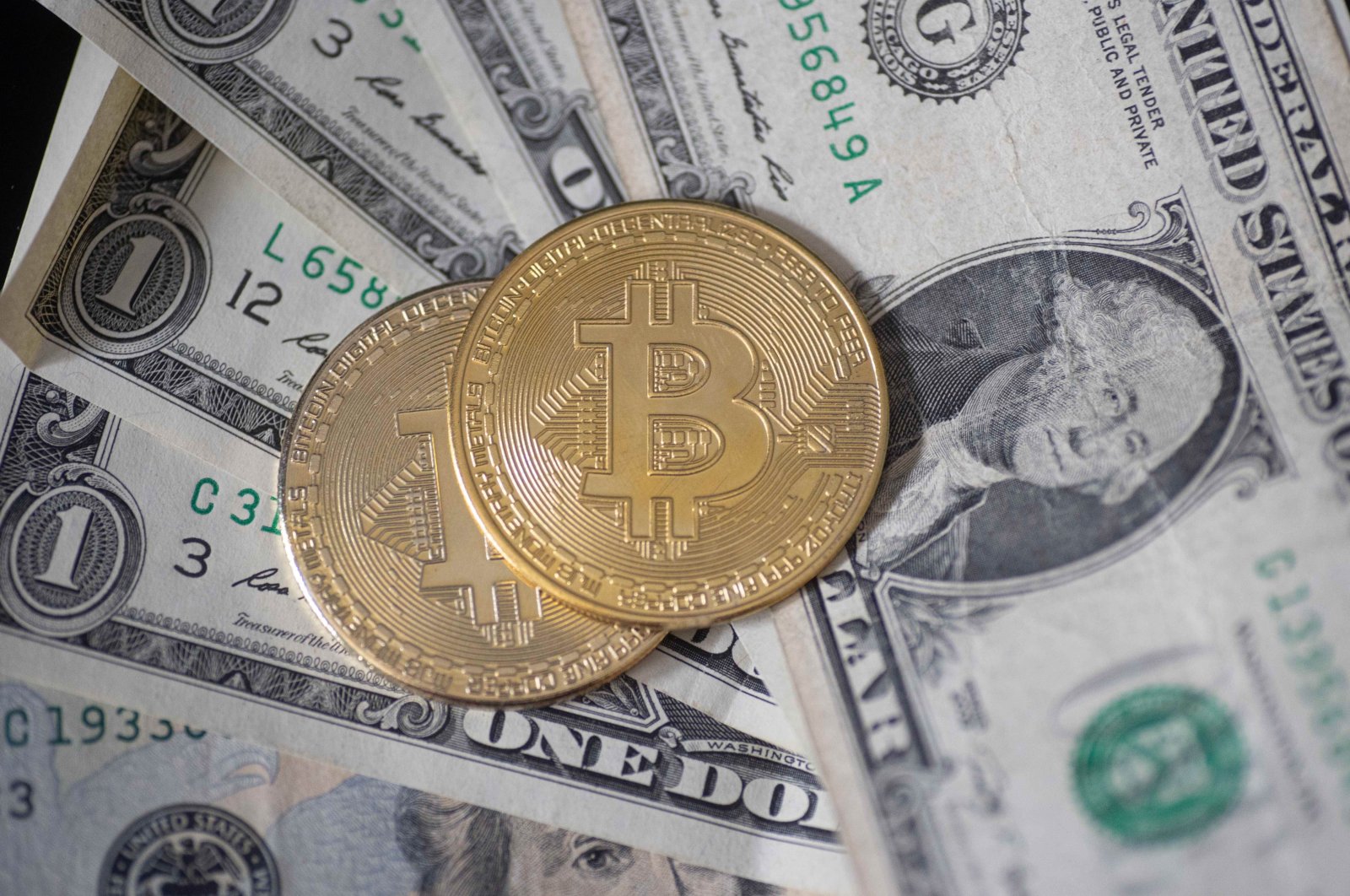Bitcoin As A Tool For Financial Freedom - How Bitcoin Reshapes Money Matters
Learn about Bitcoin as a tool for financial freedom. Unleash autonomy, protect against inflation, and reshape personal finance landscapes.
Author:Gordon DickersonReviewer:James PierceJan 30, 202413.8K Shares261K Views

Bitcoin as a tool for financial freedom, often referred to as digital gold, has emerged as a revolutionary tool in the realm of finance. In a world dominated by traditional financial systems, centralized institutions, and government controls, Bitcoin stands as a decentralized alternative that empowers users to take control of their financial destinies.
Crypto fans recognize the importance of Bitcoin and other cryptocurrencies for global innovation and financial freedom. Crypto contributors, in particular, have demonstrated support for some of the most pressing issues while also advocating for individual liberty.
You, too, can become an advocate for what Bitcoin stands for if you value individual independence and liberty. Be a crypto hero by donating to one of the thousands of charities that take Bitcoin, USDC, Ethereum, and other cryptocurrencies, demonstrating just one of the many ways in which Bitcoin can be a strong force for good.
This article explores the various facets of Bitcoin as a tool for financial freedom, examining its characteristics, benefits, and the impact it has on reshaping the landscape of personal finance.
Decentralization And Financial Autonomy
At the core of Bitcoin's value proposition is its decentralized nature. Unlike traditional currencies that are governed and regulated by central authorities, Bitcoin operates on a peer-to-peer network powered by blockchain technology. This decentralized structure means that no single entity or government has control over Bitcoin. This autonomy from centralized control is a key factor in providing financial freedom to its users.
Bitcoin provides a truly decentralized option, bringing us closer to freedom through non-domination. Bitcoin's decentralized nature avoids the type of dominance associated with centralized structures such as stablecoins or traditional finance. Each participant can influence the network's decisions, lowering the possibility of arbitrary authority and encouraging a more republican vision of freedom.
Individuals who hold Bitcoin have the ability to transact directly with one another without the need for intermediaries such as banks. This direct peer-to-peer system ensures that financial transactions occur seamlessly, without the constraints and delays associated with traditional banking systems. Users become their own custodians, eliminating the need to rely on third parties to manage or access their funds.
Examples
Bitcoin provides a lifeline for individuals imprisoned in a war-torn country. Individuals might use Bitcoin's decentralized structure to safely and anonymously transfer payments, giving their loved ones a better life. It demonstrates the power of Bitcoin in the face of hardship.
In Africa, a collaborative movement known as the #Kisaw project uses Bitcoin to provide direct cash to farmers, allowing them to buy the resources they need to develop their farms and support their families. Using Bitcoin, AfroBitcoinOrg(African Bitcoin Community) eliminates the need for intermediaries and bureaucratic barriers that farmers frequently face when seeking financial assistance through traditional channels.
This not only helps farmers with their agricultural undertakings, but it also has a broader impact on local economies and communities. Farmers prosper and boost productivity, which contributes to food security, income, and economic growth. Their success has a beneficial ripple effect throughout the community, promoting resilience and long-term growth.
Finally, remember the Canadian Truckers' Protest? Supporters worldwide realized the significance of the truckers' cause and the necessity to oppose government authority. They used Bitcoin's decentralized structure to transmit direct donations to the cause, avoiding the limitations imposed by regular financial institutions.
Bitcoin's decentralized network ensured that no single government could restrict or seize transactions. The opportunity to receive Bitcoin donations has a significant impact on truckers and their movements.
It supplied them with the means to continue their cause by financing costs such as fuel, food, and other necessities for their protests. It demonstrated to them that they were not alone in their struggle and that people all throughout the world supported them in their fight for freedom.
Protection Against Inflation
One of the notable features of Bitcoin is its capped supply. There will only ever be 21 million bitcoins in existence, making it inherently deflationary. In contrast, traditional fiat currencies are subject to inflationary pressures as central banks can print more money, leading to a decrease in purchasing power over time. Bitcoin's fixed supply protects its users from the erosion of value caused by inflation, offering a hedge against the devaluation of traditional currencies.
In regions where hyperinflation is a significant concern, Bitcoin provides a secure store of value. Citizens in such areas can turn to Bitcoin to preserve their wealth and escape the uncertainties associated with volatile fiat currencies. This ability to protect against inflation contributes to the financial freedom of individuals who choose to allocate part of their wealth to Bitcoin.
Financial Privacy And Security
Bitcoin transactions are pseudonymous and recorded on the blockchain, providing a level of financial privacy that is often lacking in traditional banking systems. While the transaction history of each Bitcoin address is transparent and visible on the blockchain, the identities of the users behind these addresses remain pseudonymous. This privacy feature allows users to maintain a degree of anonymity in their financial transactions.
For individuals living in regions with strict financial controls or concerns about government surveillance, Bitcoin offers a level of financial privacy that is increasingly valued. Users can conduct transactions without exposing sensitive personal information, providing a layer of security and protecting against potential misuse of financial data.
Ownership And Control
When individuals hold Bitcoin, they have complete ownership and control over their assets. Traditional financial systems often involve a reliance on intermediaries, such as banks, which have the authority to freeze accounts or impose restrictions. With Bitcoin, users have exclusive control over their private keys, the cryptographic keys that grant access to their funds.
This ownership and control empower individuals to be the sole custodians of their wealth. It eliminates the need for trust in third-party institutions and minimizes the risk of funds being seized or frozen arbitrarily. Bitcoin users can move, transfer, and manage their assets with unparalleled autonomy, fostering a sense of ownership that is fundamental to the concept of financial freedom.
Financial Education And Empowerment
Bitcoin's rise has been accompanied by a growing emphasis on financial education and literacy. As individuals explore the world of cryptocurrencies, they often gain a deeper understanding of monetary systems, economics, and the implications of centralized control. This increased financial literacy empowers individuals to make informed decisions about their financial future.
Bitcoin's decentralized nature encourages a mindset of self-reliance and proactive financial management. Users become more engaged with the dynamics of the global economy, gaining insights into the implications of monetary policies and the role of decentralized technologies. This educational aspect of Bitcoin contributes to the broader goal of financial empowerment and independence.
Bitcoin As A Tool For Financial Freedom - FAQs
Is Bitcoin A Financial Freedom?
Yes, Bitcoin provides the ability to achieve financial independence and a greater quality of life.
Can Bitcoin Be A Solution For Individuals In Regions With Limited Access To Traditional Banking Services?
Yes, Bitcoin's global accessibility allows individuals with an internet connection to participate in the network, providing financial inclusion to those without access to traditional banking.
Is Bitcoin A Good Financial Investment?
Bitcoin is a dangerous and volatile investment that should only be considered if you have a high-risk tolerance, are already in a good financial position, and can afford to lose any money you invest in it.
Conclusion
Bitcoin, with its decentralized architecture and unique features, serves as a powerful tool for individuals seeking financial freedom. Bitcoin as a tool for financial freedom provides autonomy, protection against inflation, global accessibility, financial privacy, ownership, and financial education contributes to reshaping the landscape of personal finance.
As more individuals recognize the potential of Bitcoin to break free from traditional financial constraints, its role as a catalyst for financial freedom is likely to grow, ushering in a new era of economic empowerment and self-determination.

Gordon Dickerson
Author
Gordon Dickerson, a visionary in Crypto, NFT, and Web3, brings over 10 years of expertise in blockchain technology.
With a Bachelor's in Computer Science from MIT and a Master's from Stanford, Gordon's strategic leadership has been instrumental in shaping global blockchain adoption. His commitment to inclusivity fosters a diverse ecosystem.
In his spare time, Gordon enjoys gourmet cooking, cycling, stargazing as an amateur astronomer, and exploring non-fiction literature.
His blend of expertise, credibility, and genuine passion for innovation makes him a trusted authority in decentralized technologies, driving impactful change with a personal touch.

James Pierce
Reviewer
James Pierce, a Finance and Crypto expert, brings over 15 years of experience to his writing. With a Master's degree in Finance from Harvard University, James's insightful articles and research papers have earned him recognition in the industry.
His expertise spans financial markets and digital currencies, making him a trusted source for analysis and commentary. James seamlessly integrates his passion for travel into his work, providing readers with a unique perspective on global finance and the digital economy.
Outside of writing, James enjoys photography, hiking, and exploring local cuisines during his travels.
Latest Articles
Popular Articles

